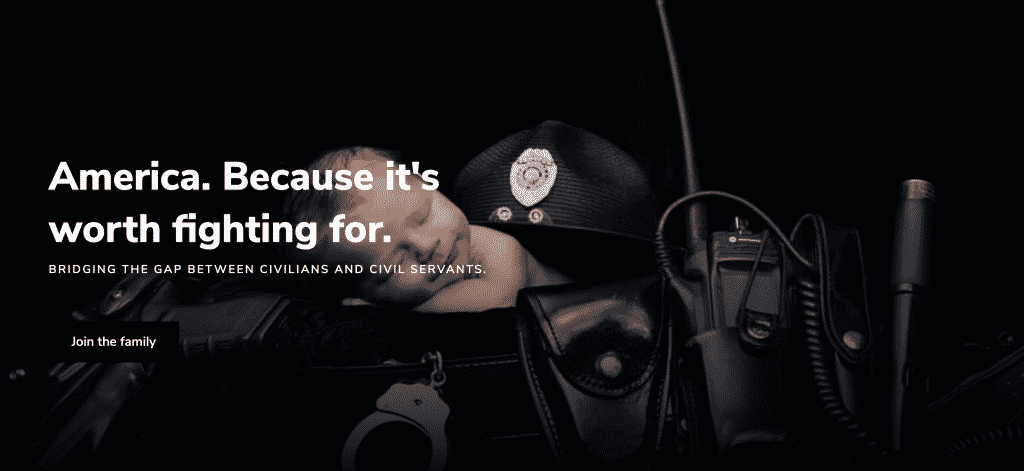LANSING, MI – As the push continues throughout the country to pass police reform laws, the state of Michigan has joined in, recently proposing 11 bills concerning police reform.
One bill, written by District 39 Republican Representative Ryan Berman, would require extensive training for police officers in Brazilian Jiu-Jitsu (BJJ).
House Bill Number 4525 calls for all police officers in Michigan to have the rank of blue belt or higher in BJJ, beginning January 1, 2023. A blue belt typically takes a minimum of 12-18 months of consistent training to achieve.
#Michigan Rep, Ryan Berman @ElectRyanBerman , Introduces Bill For #BJJ Blue Belt Requirement For #Police Officers – @BlaineHenryTFL has the storyhttps://t.co/IS4JLLv8jQ
— Eric Kowal – MyMMANews.com (@MyMMANews) June 1, 2021
Jiu-jitsu, known as “the gentle art,” is a martial art based on ground fighting. It is notable for controlling and submitting an opponent through technique, leverage, and mechanics.
Millions of UFC fans across the country are quite familiar with some jiu-jitsu techniques, such as joint locks and chokes, when they are incorporated into mixed martial arts fighting. To be clear, however, traditional BJJ does not utilize striking.
BJJ also incorporates takedowns such as judo or wrestling techniques to bring the opponent to the ground. BJJ techniques also lend themselves well to street situations with vertical surfaces, such as fighting against a wall or a car.
One understated aspect of this martial art is its mental one. BJJ is often referred to as a chess match on the ground. From any starting point, there exists an infinite array of possibilities for moves and counter moves. The best jiu-jitsu practitioners are able to think several steps ahead and create multi-pronged decision trees to determine how best to submit an opponent.
Perhaps most importantly, BJJ’s reliance on technique and mechanics can allow a small fighter to handle a heavier, stronger fighter. This aspect, obviously, has particular benefit for women.
Michigan police reform bill would require officers to be trained in BJJ/grappling:https://t.co/BUhnhNcSBs
— Jon Anik (@Jon_Anik) June 3, 2021
Rep. Berman told Michigan’s Fox 47 News that his idea behind this training for police officers was:
“So then they don’t have to use excessive force.”
He added:
“They don’t have to punch someone 15 times to submit….
“It’s really to help them so these situations don’t happen, so they don’t use unnecessary force and they will have more tools in their toolbox, if you will, to handle any situation that arises.”
Jiu jitsu training for police has recently made headlines, since famed Gracie University chief instructor Rener Gracie put forth his own reimagining of jiu jitsu based police training.
Gracie is well known for law enforcement officer instruction and for breaking down police use of force videos and describing how things went well, or could have gone better.
In November 2020, Gracie proposed mandatory officer training of one hour per week, with additional incentivization based on completion of training at the 100, 200, 300 and 400 hour marks.
He explained:
“[Police officers] use excessive force when they probably didn’t need to because of their limited training. Not only do officers get beat up because they don’t have the training, even if it’s justifiable the question is ‘is it necessary.’
“They’re over-reliant on their tools because they have no hands-on skills.”
Cop Uses Great Jiu-Jitsu Technique To Control Suspect https://t.co/W0JueBVTqh #bjj #jiujitsu pic.twitter.com/kcAcExbLcN
— Roll With the Wave (@roll_wave) January 3, 2019
Some police departments in the U.S. have already implemented protocols similar to Michigan’s House Bill Number 4525.
In Marietta, GA, for instance, the police department began requiring jiu jitsu training for police officers two years ago. New officers are required to go through five months of mandatory BJJ training, and BJJ instruction is also available for officers who are already on the force. BJJ instruction is in addition to the defensive tactics training already in place.
In the last year, additional opportunities have been added for training in Marietta, and now all MPD officers can take up to three BJJ classes per week.
WSB-TV 2 reports that 60 percent of the officers who have undergone the five months of training are continuing to train in BJJ.
The Marietta Police Department recently reported encouraging statistics regarding the success of implementing BJJ training.
2020 figures compared MPD officers who underwent BJJ training with those who had not.
There was a 48% reduction in injuries to officers using force, and none of the injured officers were BJJ practitioners.
In addition, there was a 53% reduction in injuries to the arrestee when force was required.
Furthermore, there was a 23% reduction in Taser use.
Looking at training investment versus savings on workers compensation, MSN reports that the Marietta Police Department came out ahead, with a net savings of $40,752.
#Marietta #Georgia #Police Department makes #BJJ mandatory. @BlaineHenryTFL has the storyhttps://t.co/PyOENeZdz0
— Eric Kowal – MyMMANews.com (@MyMMANews) June 15, 2020
The concept of implementing BJJ training in police departments has drawn favor from other members of law enforcement who train in jiu jitsu.
Rob Magao, a 24 year veteran of law enforcement who holds a second degree black belt in jiu jitsu and owns two jiu jitsu academies in Connecticut, shared with us why he believes police officers ought to train in jiu jitsu as opposed to other martial arts.
He said:
“First of all, it’s a problem solving art. When you are training, you’re constantly under pressure.
“You have to make decisions, you have to read your opponent and what’s happening – everybody uses the old physical chess match type scenario.
“And in a lot of martial arts, and I’ve trained in many, you’re not always placed in that same level of pressure. You’re not feeling that physical resistance of another human being all the time.
“A lot of training in other martial arts is very static, step by step processes. I think that’s the way a lot of defensive tactics programs are. They’re very static, they’re very cooperative.”
Magao added:
“I think in jiu jitsu training, much like judo, much like wrestling, or boxing, or Muay Thai, or MMA, is putting you in the frying pan to face the pressure of another human being that’s not just letting you do something.
“And I think that’s crucial to law enforcement, because so many officers go to training, at the academy. They get their however many hours the academy supplies …and then they go in the field and they try to do what they were taught, and it fails miserably. And then the world starts to judge them.
Highlighting the often humbling experience of training jiu jitsu, he added:
“I think that jiu jitsu really puts you in a position where you’re forced to realize what you’re not good at. You realize very quickly, wow, you can’t underestimate people. You can’t look at someone and say, I’m bigger than them, or stronger than them, or younger than them.
“You realize very quickly through the training of being put in very bad positions all the time that, man, what if this was real, what if this was on the street?”
Sure. Go on YouTube and look for “BJJ police.” The Gracie Breakdown channel has several great videos showing how BJJ is already taught in some PDs and violence reduction has been the result. https://t.co/U4dGOMrCli
— Yang Tasks 🧢 (@YangTasks) January 22, 2020
This humility aspect of BJJ rings true for another police officer, who spoke with us on condition of anonymity.
A 17-year veteran of law enforcement, he is a command officer with a major metropolitan police department, and a jiu jitsu black belt who has trained police and civilians alike in jiu jitsu, judo and mixed martial arts.
He told us that humility is part and parcel of BJJ training, and as such, translates very well to psychological aspects of officers’ interaction with the community.
He pointed out that, while learning jiu jitsu, a police officer can be submitted in class by civilians who simply do not look like they ought to be fighters, such as schoolteachers or bankers.
He added:
“You have to be humble. You really have to submit your ego. Because in order to learn jiu jitsu, that’s a must….
“And once you can submit your ego and start to learn jiu jitsu, then you can submit your ego on the street when you’re dealing with the public too. That’s the number one thing that gets cops in trouble and in fights, and in uses of force, and gets them complaints, is if their ego won’t let them back down.
“And I tell my cops all the time, no one has ever been complained on for telling a citizen, ‘I’m really sorry, I didn’t have that information. Thank you for giving me that.’”
Another psychological aspect that jiu jitsu teaches, our source continued, is that of “cognitive resiliency.”
Echoing Rob Magao’s above observations on how jiu jitsu training repeatedly puts officers in bad positions against a very resistant opponent, our source noted that an officer might find themselves fighting the “urge to panic and freak out” while being controlled in a difficult position.
He added:
“The most valuable thing that we can teach cops is, under combat related stress, to resist the urge to panic, keep your wits about you and not go into that condition black. And to reel yourself in and problem solve. Make sound tactical decisions under stress.
“And jiu jitsu teaches you that through repetition and stress inoculation….
“It makes more confident and more competent cops on the street that are going to make better decisions in intense, stressful, rapidly evolving situations.”
Jiu jitsu holds advantages over tactics and martial arts that rely on striking, he added, saying:
“Striking arts can instill a false sense of confidence. Because with striking arts, you’re always going to be limited by the size, strength, and ability of your opponent, as well as your own size, speed and ability.
“If you’re only punching bags, and you’re only sparring with cooperative partners, never getting hit back, and you’re not working on footwork and you’re not working on managing distance, then you’re giving people false confidence.
“When they actually get into a fight, and particularly in a fight with a skilled fighter, they are not going to rise to the occasion…. and there is a much higher rate of injury when strikes are involved, on both sides.”
Circling back to psychological advantages of jiu jitsu practice, our source noted that a fundamental principle of “moving around the problem” in BJJ can be applied to interacting with the public when it comes to de-escalation.
With BJJ, he told us:
“You don’t have to teach hundreds and hundreds of movements. You teach principles.
“Once people understand principles of body placement, hip control, limiting movement and mobility, and how to move themselves around a problem, rather than trying to move the problem into a place where they have the advantage… once they understand that concept, it makes them safer and better at arrest control because you don’t have to use as much force.”
This concept of moving around the problem, he said, can be applied to defusing situations verbally as well.
He continued:
“I think that understanding fundamental principles transfers across the board, because then, [police officers] start to find workarounds and creative solutions to problems in the calls that they handle. Because they’re not just going to lock horns and go head to head with everybody all the time.
“They are going to figure out that, like jiu jitsu is a human chess match, so is conflict resolution and dealing with the public. You don’t need to get in a contentious back and forth ….
“We can navigate around the person. Instead of having to fight at their level, if they’re loud, we don’t have to get loud, we can flank them and go a different direction and defuse the situation.”
Michigan’s House Bill 4525, in its present form, lacks certain logistical details such as locations of training and how blue belt training programs would be vetted and certified for law enforcement.
These would need to be ironed out before a program could be implemented, and there are other caveats to consider.
For instance, Rob Magao told us:
“My only concern is, you can’t rush somebody to a blue belt…..
“No two people are the same. You could have two twin brothers or sisters come in the door right now, and one might make blue belt in two years, and one might make it in three. There’s no guarantee of how long it’s going to take.
“It’s a personal journey, and I worry that if they put programs like this in place and enforce it as a mandate, that you could see administrators and people in chief’s positions that don’t truly understand what a blue belt should be, basically rushing the process.
“And that becomes a false sense of security or false sense of reality.
If this bill were to pass and logistics were ironed out, one would hope that a program in Michigan would see the same success as the BJJ program in Marietta, GA.
After all, says our anonymous source, physical contact is simply a necessary part of police work.
He observed:
“In order for us to effect an arrest… some cop at some point is going to have to close the distance and put hands on to put the cuffs on. Every single time. You’re never going to get away from that….
“If somebody is just defensively resistant, and doesn’t want to be handcuffed, and they go down on the ground and they turtle and jam their hands underneath them, now you’re on the ground, ground fighting for control. It happens all the time.
“Why would you not want knowledge, skills and ability to address that?
“Why would you not want to be confident in dealing with that? And dealing with it without introducing weapons into an unarmed conflict?”
————
Want to make sure you never miss a story from Law Enforcement Today? With so much “stuff” happening in the world on social media, it’s easy for things to get lost.






